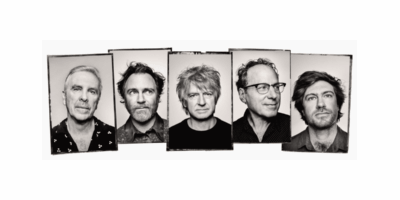Using sound-alike versions of popular songs to sell products is one of the oldest tricks in the advertising book. But it also means that advertisers are constantly dangerously skirting the controversial line between a mere rendition and serious rip off.
In recent years, Aussie bands have been no stranger to this dodgy practice – we’ve seen John Butler Trio’s ‘Zebra’ copied to peddle yoghurt in a Superbowl commercial selling yoghurt, Weet-Bix mimicking The Grates, Mercedes Benz referencing GOD’s 1987 cult hit ‘My Pal’, local Canberra band Tonk being pilfered twice, and perhaps the most bizarre case, Jinja Safari’s music being used in a promotional ad for a Chilean presidential candidate without permission.`
But along with the rise in sound-alikes comes a rise in the legal disputes between advertisers and the bands that they’re liberally ‘borrowing from’, an increase that is likely to continue according to a South Australian law firm in regards to a new dispute that’s developed between a major car manufacturer and a New Zealand band that could have new copyright implications for the sound-alike practice in Australia.
The case involves Audi and their advertisement for the Quattro luxury 4WD, with lawyers from Universal Music accusing the ‘Land of Quattro’ commercial of copying ‘Land of Plenty’, the 1996 single from New Zealand band OMC (of ‘How Bizarre’ fame), as News Ltd reports, but the lawsuit could help stop bands being ripped off by TV adverts in the future.
Peter Campbell, partner at SA-based law firm Kelly & Co, says that if the case proceeds it will be the first in New Zealand to address the advertising practice of using sound-alike versions that don’t necessarily breach copyright by using the original recording, but recreating it and instead becoming an issue of misleading and deceptive conduct.
Mr Campbell, who specialises in legal advice to ad agencies, radio and television, believes that the Audi/OMC dispute could lead to changes in copyright infringement testing and misleading conduct claims in Australia,
“For advertisers, it’s always a balancing act,” Mr Campbell tells News Ltd. “Change the piece of music too far and any recognition and emotion you hope to evoke in the audience may be lost. Change the tune too little and there is a real risk of copyright infringement, which could result in costly legal action or an entire marketing campaign having to be dropped.” “Music composers and artists are now far more aware of their legal rights and increasingly aggressive in protecting their material and seeking appropriate compensation.”
The use of sound-alike tunes is not a new phenomenon, but “it has become a complex and increasingly litigious area of intellectual property law,” says Mr Campbell, with the use of heavily mimicked versions running a greater risk that could breach copyright infringement.
Love Music?
Get your daily dose of metal, rock, indie, pop, and everything else in between.
“Music composers and artists are now far more aware of their legal rights and increasingly aggressive in protecting their material and seeking appropriate compensation,” he adds.
The increased legal wrangling has to do with artists missing out on traditional revenue streams and music sales, as the Kelly & Co partner points out, as well as the increased use of social media to bring attention to such cases of rip-offs or misused music.
“[Artists] are missing out on royalties and sales so they have become a lot more aggressive,” says Mr Campbell. “They figure it’s the best way to send a message. Sometimes they chase people all the way down to individuals to send a message.”
One need only look at the contentious legal battle that’s broken out between the surviving Beastie Boys and feminist toymakers GoldieBlox for a very recent example. The two parties even sending open letters addressed to the other over the toymakers re-working the hip-hop group’s 80s tune ‘Girls’ for an online commercial that went viral, claiming it as a parody while the Beasties said it breached copyright and misled audiences.
Other recent cases of international artists finding their work being misappropriated for advertising includes The Black Keys, who have filed several lawsuits against the likes of Pizza Hut, Home Debut, and a casino chain, and a case between Volkswagen and dream pop duo Beach House, who turned an offer to use one of their tracks before the ad agency whipped up their own version, and defunct UK indie act Wu Lyf fuming at their music used in a ‘sexist’ ad for Toyota.


































